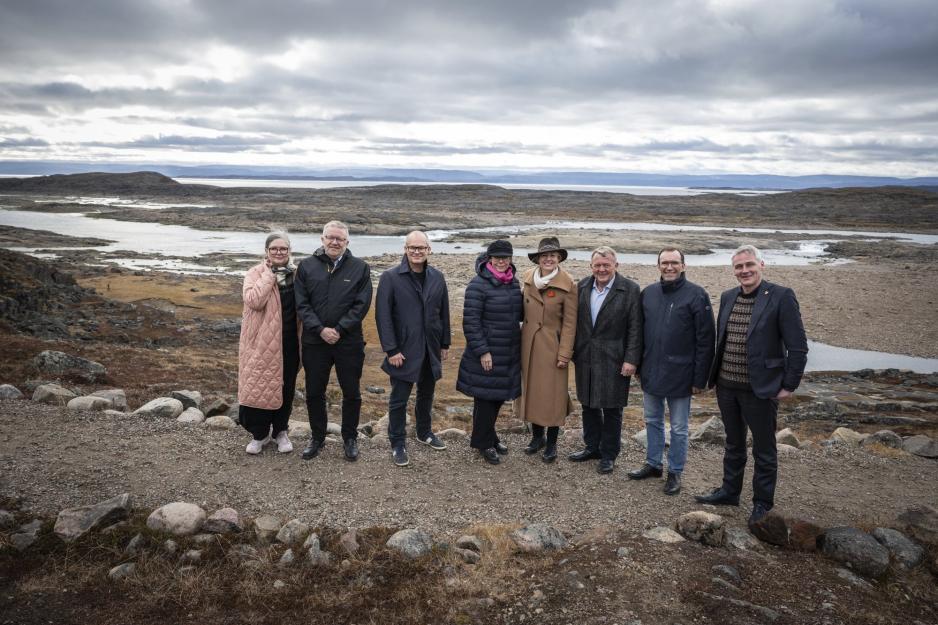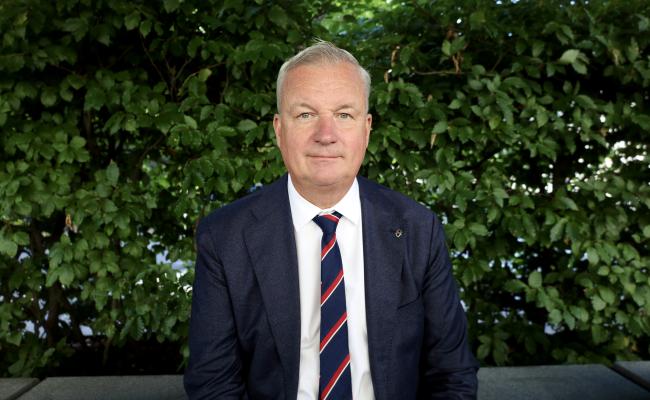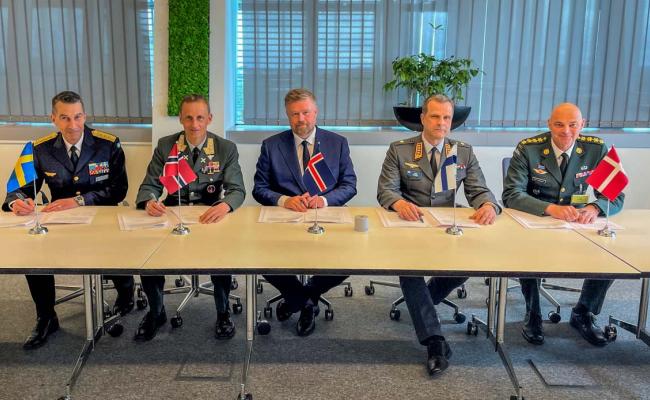First Canada-Nordic Strategic Dialogue: "Key to a Safer Future For Us in The Region"

The very first strategic dialogue meeing between Canada and the Nordics took place at the end of September 2024. The foreign ministers of Canada, The Kingdom of Denmark, Iceland, Norway, and Sweden and the State Secretary to the Minister for Foreign Affairs of Finland first met in New York before they traveled to Iqaluit, Nunavut where they were joined by the Foreign Minister of the Faroe Islands and an official from the Government of Greenland (Naalakkersuisut). (Photo: Canada Global Affairs)
In the very first strategic dialogue between Canada and the Nordic countries, which took place in New York and Nunavut, Canada, the six Arctic nations agreed to face the ever-changing geopolitical challenges together by strengthening Canada's security relationship with Finland, Sweden, Norway, Denmark and Iceland.
"Our climate action and multilateral cooperation are key to a safer future for all of us in the region," Canadian Foreign Minister Melanie Joly (Liberal Party) said in a statement after she hosted the foreign ministers of the Kingdom of Denmark, Finland, Iceland, Norway and Sweden at the end of September.
The meeting, which took place between 27 and 29 September, gathered the foreign ministers in New York and Iqaluit, Nunavut in Canada, for the very first Canada-Nordic Strategic Dialogue, where they were joined by the Foreign Minister of the Faroe Islands and an official from the Government of Greenland (Naalakkersuisut).
The 2024 Strategic Dialogue aimed to highlight Canada and the Nordic countries' cooperation on Arctic security, climate action, transatlantic partnerships, and geopolitical concerns, including Ukraine.
Strong partnership
"As we confront evolving geopolitical challenges together, strengthening our partnership with Nordic nations on Arctic security, climate action and multilateral cooperation is key to a more secure future for us all", said Joly.
The high level meeting was part of a commitment for foreign ministers to hold a strategic dialogue, made at the Prime Minister level meeting in Iceland in June, 2023.
Relations between Sweden and Canada have become increasingly significant.
In a joint statement issues by Global Affairs Canada after the meeting, the representatives of the Arctic nations says that Canada and the Nordic countries enjoy a strong and deepening partnership, "anchored in our common democratic values, shared interests in the North Atlantic and the Arctic region, as well as our commitment to the rules-based international order, multilateral cooperation, international law, democracy, human rights, and tackling disinformation."
The statements says that the transatlantic relationship is key to to nations collective security.
Strengthened relationship
Sweden's Minister for Foreign Affairs, Maria Malmer Stenergard (Moderates), said in a statement that relations between Sweden and Canada have become increasingly significant.
"Canada is an important strategic partner to Sweden with regard to NATO and Ukraine, security in our neighbourhood, and bilateral investment in green transition, new technologies, AI and innovation,” said Malmer Stenergard.
The joint statement also says that the countries will work together to strengthen this relationship:
"This is the foundation upon which we commit to work pragmatically together to address complex global challenges, including those arising from challenges to the global order."
Support for Ukraine
In New York, substantive issues were discussed relating to Russia’s illegal and full-scale invasion of Ukraine, transatlantic cooperation, and the concerning developments taking place in the Middle East, including the Gaza Strip.
The foreign ministers reiterated their steadfast support to Ukraine in the face of continued Russian aggression and re-affirmed their commitment to continue to provide Ukraine the means to defend itself for as long as it takes.
They also condemned the hostile hybrid operations Russia conducts in response to support given to Ukraine.
Arctic issues
The Iqaluit portion of the Dialogue focused on Arctic issues.
"As Arctic nations, Canada and the Nordic countries share a deep commitment to multilateral cooperation and international law, including The United Nations Convention on the Law of the Sea (UNCLOS). Inclusive engagement with those who live there, including Indigenous peoples, is essential to ensure a stable, prosperous and secure Arctic region", the statement reads.
The foreign ministers committed to work together to achieve these goals. To this end, they agreed to explore means through which to deepen security dialogue amongst all like-minded states in the Arctic.
Canada is a strategic partner and ally for Finland
Strong concern
"Canada is a strategic partner and ally for Finland", State Secretary of Finland, Pasi Rajala wrote on X, and thanked Minister of Foreign Affairs in Canada for for hosting an "insightful conversation on transatlantic security and Arctic cooperation."
In Iqaluit, the delegation heard perspectives from the Government of Nunavut, Inuit leaders including from Inuit Tapiriit Kanatami, National Defence officials and Canadian Rangers on the context, realities and challenges experienced by northerners in the Canadian Arctic.
The foreign ministers expressed their strong concern over the intensifying impacts of climate change, notably in the Arctic.
Wildland fires
They re-affirmed their commitment to work pragmatically together to address complex climate change challenges, to promote sustainable economic growth in the Arctic, to foster regional stability and to support closer collaboration, including North-to-North and Indigenous-to-Indigenous connections.
"Canada and the Nordic countries will continue to explore opportunities to deepen collaboration in addressing wildland fires in the North and securing healthy oceans and ecosystem-based resources as part of a comprehensive, knowledge-based, and sustainable approach to ocean management.
"The foreign ministers recognize that our countries possess significant deposits of critical minerals and confirm their commitment to promote the responsible development of sustainable and resilient critical mineral value chains and to work together to advance economic well-being, defence and security, infrastructure, energy security and connectivity, including in the Arctic."
The foreign ministers agreed to continue the dialogue on shared policy priorities and to further strengthen the transatlantic cooperation between Canada and the Nordic countries.



